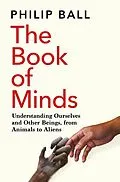Understanding the human mind and how it relates to the world that we experience has challenged philosophers for centuries. How then do we even begin to think about 'minds' that are not human?
Taking a uniquely broad view of minds and where they might be found - including in plants, aliens, and God - prize-winning science writer Philip Ball pulls these multidisciplinary pieces together to explore what sorts of minds we might expect to find in the universe.
He offers for the first time a unified way of thinking about what minds are and what they can do, arguing that in order to understand our own minds and imagine those of others, we need to move on from considering the human mind as a standard against which all others should be measured, and to think about the 'space of possible minds'.
Ball sheds new light on a host of fascinating questions. What moral rights should we afford animals, and can we understand their thoughts? Should we worry that AI is going to take over society? If there are intelligent aliens out there, how could we communicate with them? Should we?
Ball's thrillingly ambitious The Book of Minds about the nature and existence of minds is more mind-expanding than we could imagine. In this fascinating panorama of other minds, we come to better know our own.
Autorentext
Philip Ball
Klappentext
Understanding the human mind and how it relates to the world of experience has challenged scientists and philosophers for centuries. How do we even begin to think about 'minds' that are not human? That is the question explored in this ground-breaking book. Award-winning science writer Philip Ball argues that in order to understand our own minds and imagine those of others, we need to move on from considering the human mind as a standard against which all others should be measured.
Science has begun to have something to say about the properties of mind; the more we learn about the minds of other creatures, from octopuses to chimpanzees, to imagine the potential minds of computers and alien intelligences, the more we can begin to see our own, and the more we can understand the diversity of the human mind, in the widest of contexts. By understanding how minds differ, we can also best understand our own.
